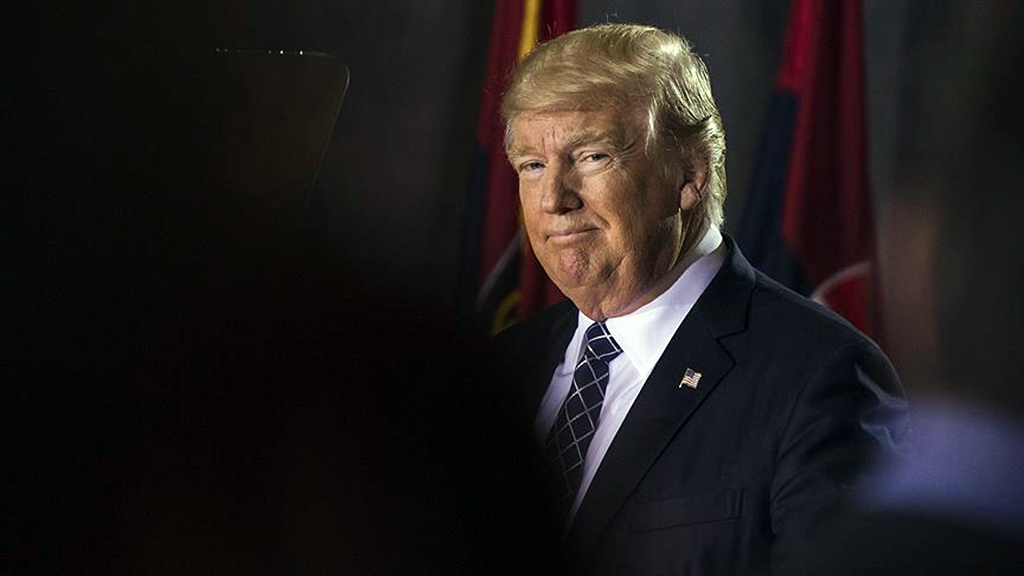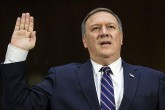U.S. President Donald Trump made headlines this week by dismissing and appointing senior members of his administration. In recent days, Secretary of State Rex Tillerson was sacked to be replaced by CIA Director Mike Pompeo. Meanwhile, Trump picked Gina Haspel, an intelligence officer with a history of torture allegations, to run the CIA. At the same time, the White House appointed Larry Kudlow, a TV economist with “econo-nationalist views” who believes in the “strong dollar” and calls for a harsh commercial response against China as director of the National Economic Council.
The most recent appointments strengthened the Trump administration’s national security and nationalist credentials. An outsider to politics and the bureaucracy, Trump’s efforts to pick his colleagues through trial and error might look like a weakness at first. But a quick look at the current lineup of heavyweights in the administration reveals that a certain level of political and ideological unity has emerged.
First, the Trump administration is clearly military-dominated. A military high school graduate himself, the U.S. president picked members of his A Team from among military-educated experts: John Kelly, H.R. McMaster, Jim Mattis and Mike Pompeo. With the notable exception of Mr. McMaster, who is reportedly on his way out, the entire group consists of hardliners in line with Mr. Trump’s campaign slogan: America First. As such, the appointment of Pompeo as secretary of state could bridge the already shrinking gap between the State Department, the Department of Defense and the White House.
Going forward, the growing unity within his administration could shift Trump’s attention to concrete policy development. Quite possibly, the U.S. will be more vulgar in national security issues and to protect its economic interests. In truth, it took just 14 months for the Trump administration to uproot the “liberal order,” which the U.S. was long credited for putting in place. Currently trying to liberate itself from global responsibilities, Washington will probably make a bigger impact on world politics by taking a nationalist turn. As such, it seems inevitable for the U.S. to take concrete steps against China, Russia and Iran.
Tillerson’s departure (and Pompeo’s imminent arrival) have been the talk of town in the Turkish capital Ankara. Needless to say, the main concern is whether this change in personnel would place Turkey’s agreement with the United States on Manbij at risk. Having just started talking about the PKK’s Syrian branch, the People’s Protection Units (YPG), renewed tensions would hurt the interests of both countries. But the million-dollar question is how an increasingly united Trump administration will affect Turkey-U.S. relations. It remains unclear how the administration’s Syria, Iran and Russia policies, which will be developed by this group of pro-military hawks, impact Turkish interests.
If Pompeo convinces Mr. Trump to assume a stronger position on Russia, Washington’s relations with Moscow will be further strained. A range of other issues aside, the U.S. and Russia have been criticizing each other with references to Turkey’s Operation Olive Branch in northern Syria. According to U.S. officials, Russia authorized the Turkish incursion in Afrin to drive a wedge between the two NATO allies. Moscow, in turn, blames Washington for taking certain actions in eastern Syria and in the east of the Euphrates river, to provoke Turkish retaliation. As a matter of fact, Russian Foreign Minister Sergey Lavrov recently argued that the U.S.’s effort to create a safe zone for YPG militants was “ignorant.”
At the same time, the growing anti-Iran sentiments in the Trump administration could result in the consolidation of Israel’s partnership with Saudi Arabia and the United Arab Emirates (UAE) in the Middle East. Tel Aviv believes that the capture of Eastern Ghouta by the Assad regime will strengthen Iranian dominance in Damascus and urges the U.S. to focus on fighting the regime. Saudi Arabia and the UAE, in turn, will step up their opposition to Turkey and Qatar in the wake of Tillerson’s departure. As such, some Gulf countries, such as Kuwait, will face more pressure from those countries to choose sides.
Pompeo taking charge as the secretary of state might make Washington’s YPG policy consistent. There are two possible scenarios: Either Pompeo, who put an end to the differentiation between the secretary of state and the White House, can end the newly-started compromise on the YPG by supporting the U.S. Central Command (CENTCOM) or he can balance CENCTOM thanks to his expertise on documents and thus can provide Trump’s promises to Turkey be kept. With that, there can be a possibility for a Turkey-U.S. cooperation on regional politics.
[Daily Sabah, 19 March 2018]
In this article
- Opinion
- 2018
- Arabian peninsula
- Assad Regime
- Bashar Al Assad
- China
- Daily Sabah
- Donald Trump
- East of the Euphrates
- Foreign Minister
- gulf
- HTS
- Islamic Republic of Iran
- Israel
- Kurdistan Workers' Party Terrorist Organization (PKK)
- Kuwait
- Middle East
- Mike Pompeo
- NATO
- Opposition
- Peace Corridor
- People's Protection Units (YPG)
- PKK - YPG - SDF - PYD - YPJ - SDG - HBDH - HPG - KCK - PJAK - TAK - YBŞ
- Qatar
- Russia
- Russian Foreign Minister
- Safe Zone
- Saudi Arabia
- Sergey Lavrov
- Syria
- Syrian Civil War
- Syrian Conflict
- Syrian Crisis
- Syrian Regime
- Tel Aviv
- Terror
- Trump Administration
- Turkish Foreign Policy
- Turkish-American Relations
- Türkiye-US Relations
- Türkiye's Foreign Policy
- United Arab Emirates (UAE)
- United States (US)
- US President



